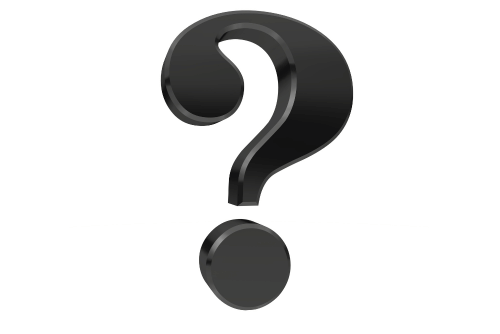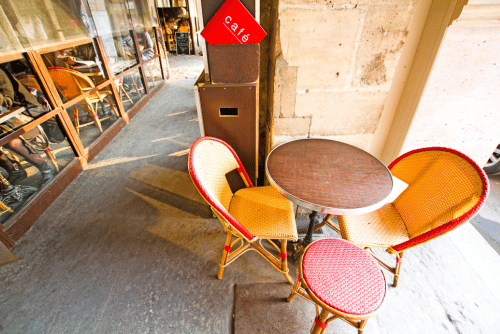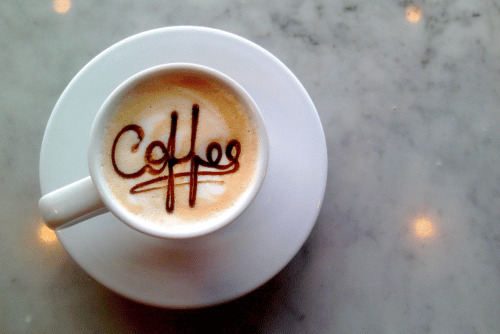I.
.
.
.
.
Welcome to the Did You Know? Corner!
Embark on a journey of discovery in the world of coffee with our "Did You Know?" section. Here, you'll uncover fascinating tidbits, surprising facts, and intriguing stories about coffee that go beyond the usual cup. From historical anecdotes to cultural curiosities, each entry is a little sip of the rich and diverse tapestry that makes coffee not just a beverage, but a global phenomenon. So, grab your favorite coffee, settle in, and prepare to be amazed by the wonders of this beloved brew.


Coffee's Monastic Connection:
Coffee's journey as a global stimulant has an intriguing start in the monastic chambers of Yemen. In the 15th century, monks discovered that this energizing brew helped them stay awake during long nocturnal prayers. As monastic communities were hubs of cultural exchange, the use of coffee spread from these religious confines to the wider world. This marked the beginning of coffee's transformation from a simple bean to a beverage that symbolizes wakefulness, contemplation, and community.
Coffee and the Beethoven Connection:
The legendary composer Ludwig van Beethoven had a well-documented love affair with coffee. He was not just a master of symphonies but also a connoisseur of coffee, with a peculiar penchant for precision. Beethoven would meticulously count out 60 coffee beans for each cup he brewed. This ritual underscores the composer's famous attention to detail, not just in his music, but also in his daily coffee routine. This anecdote offers a glimpse into the intimate role coffee played in the daily lives of historical figures and geniuses.


The World's First Coffee House:
The birthplace of the modern coffee house culture traces back to 15th century Constantinople (now Istanbul), where Kiva Han opened its doors in 1475. This pioneering establishment marked the beginning of the coffee house as a social institution. Patrons of Kiva Han didn’t just come for the coffee; they gathered for vibrant conversations, to play chess, and to listen to music. This concept quickly spread across the world, transforming the way people socialize over a cup of coffee. Kiva Han set the stage for coffee houses to become hubs of social interaction, intellectual debate, and cultural exchange.
The Boston Tea Party's Coffee Twist:
Coffee played a surprisingly pivotal role in American history, particularly during the time of the Boston Tea Party in 1773. After American colonists in Boston protested against British taxation by dumping tea into the harbor, coffee emerged as a symbol of American independence. Rejecting tea, seen as a representation of British rule, many Americans switched to coffee as their preferred beverage. This shift was more than a change in drinking habits; it was a political statement. Coffee thus became intertwined with the spirit of American patriotism and a subtle brew of rebellion.


The Invention of the Espresso Machine
The espresso machine, a cornerstone of modern coffee culture, was born out of a need for speed in the early 20th century. Luigi Bezzera, an Italian inventor, was determined to shorten the coffee breaks of his employees. In 1901, he achieved this by inventing a machine that used steam pressure to brew coffee quickly, coining the term "espresso" — derived from the Italian word for "fast." This innovation not only revolutionized the way coffee was made but also laid the groundwork for the diverse world of coffee drinks we enjoy today, from lattes to cappuccinos.
The Birth of Café Culture in Paris:
Coffee played a surprisingly pivotal role in American history, particularly during the time of the Boston Tea Party in 1773. After American colonists in Boston protested against British taxation by dumping tea into the harbor, coffee emerged as a symbol of American independence. Rejecting tea, seen as a representation of British rule, many Americans switched to coffee as their preferred beverage. This shift was more than a change in drinking habits; it was a political statement. Coffee thus became intertwined with the spirit of American patriotism and a subtle brew of rebellion.

Discover the World in Every Coffee Cup
Copyright © 2023 – All Rights Reserved
The content of this site is for informational purposes only, and is not intended to replace professional medical advice, diagnosis or treatment. Always seek the advice of your doctor or other qualified health care professional about a medical condition, a suspected medical condition, and before starting a diet, exercise, or supplementation program or take or stop a medication.




